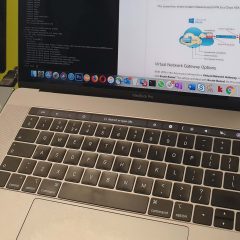MAC OSX – Add ‘Open Terminal Window Here’ to ‘Right Click’
KB ID 0001060 Problem One of the things I used to like about using Windows was if I needed to drop to command line, I could (from any given location), by simply right clicking (while pressing CTRL) and selecting ‘Open Command Window Here. On a MAC I have Terminal but thats not an option. Solution As with most things on the MAC it is there, you just need to enable it. 1. Apple Logo > System Preferences. 2. Keyboard. 3....

